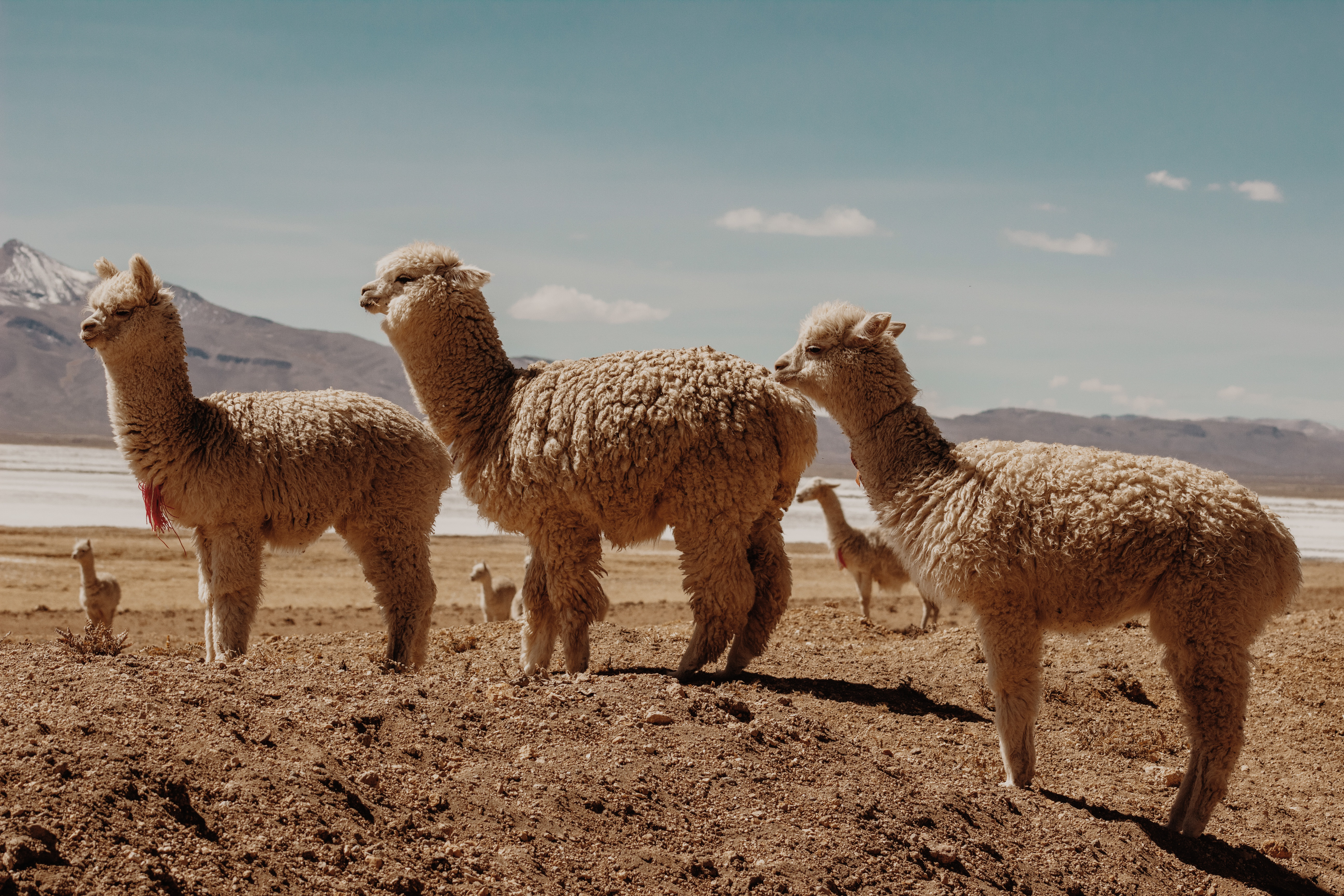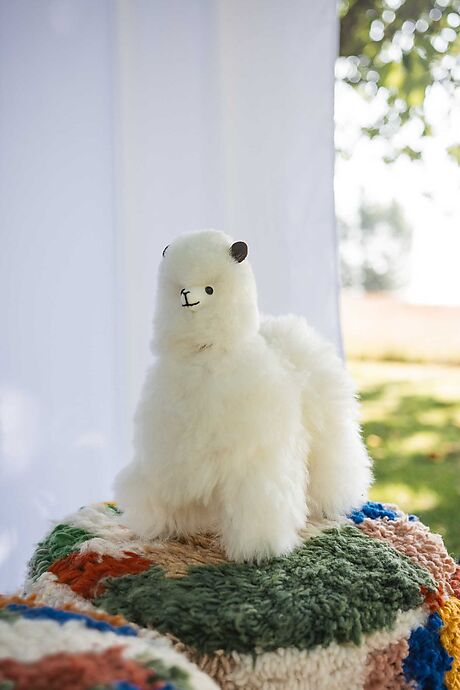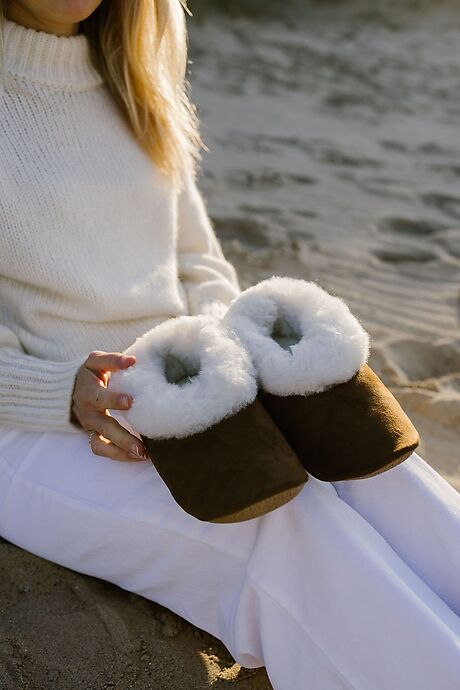Alpaca breeding
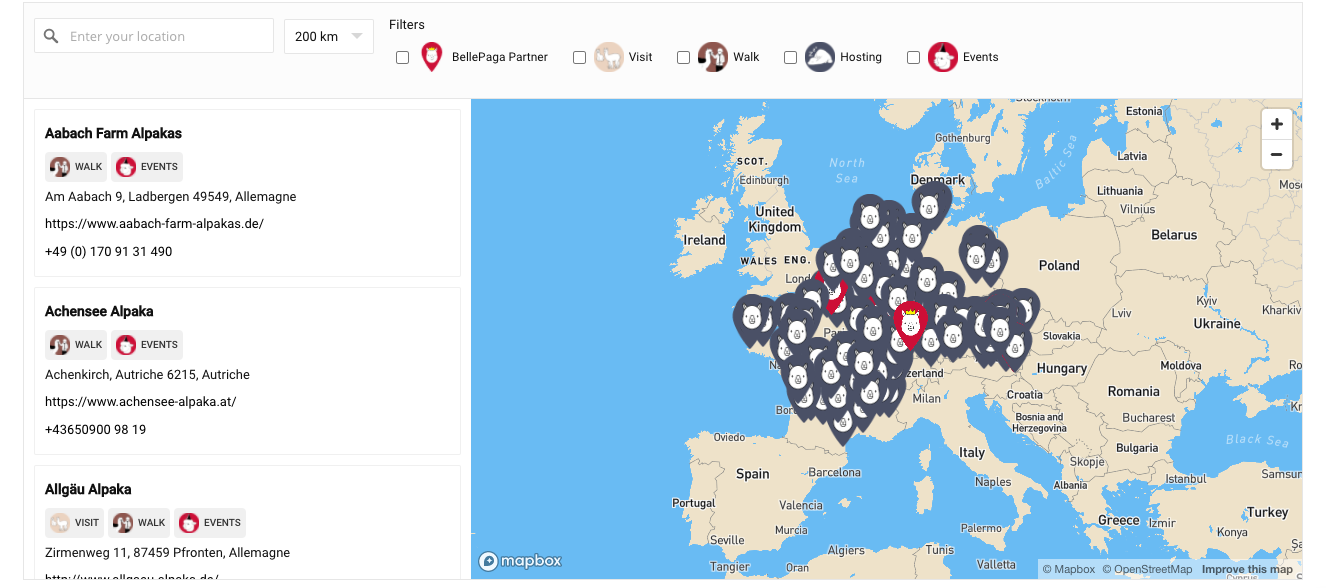
Alpaca farms are places where these animals are born, develop and reproduce.
Alpaca farms are suitable places for these curious, peaceful and majestic animals. Alpaca breeders look after the well-being of their alpacas and give them a lot of affection. Indeed, a breeding farm must respect the animal's lifestyle, adapt to its needs and reproduce its natural habitat as much as possible.
It is possible to visit these alpaca farms and go out to meet them. During this visit to an alpaca farm, you will have the opportunity to go for a walk or a hike on the estate. It is a way to get to know these animals in a playful way, in the open air and in the heart of their living environment!
The living conditions of the Alpacas in the farms :
Each alpaca farm has its own history. Building a farm requires a lot of motivation, courage and kindness towards the animals. Every alpaca farm starts with a small herd of alpacas. It is imperative that the breeders hold a diploma, because raising these small animals is not innate ! In order to become a breeder, one must first follow a very selective and rigorous training for about ten years.
The principle of alpaca breeding is to give birth to alpacas, make them grow, exploit their wool, watch over their development, their health and well-being and then make them reproduce.
Land adapted for alpacas :
An alpaca farm must have a particularly large site (several hectares) in order to reproduce the animal's natural habitat as much as possible. Originating from the Andean plateaus, alpacas are respectful of the environment, do not pollute or damage the place where they live. This is due to their paws which have pads, which preserve the pastures. It is thus possible to make alpacas live in fields, plains and hills where they can feed continuously without waiting for the grass to grow back. Alpacas are herd animals. In fact, they share a place that is delimited from the rest of the pasture and reserved precisely for their needs. This natural behaviour avoids any type of disease caused by any parasites. Living at high altitude, this animal adapts to all climatic changes thanks in part to its thermo-regulating wool.
Alpaca farms, due to their size, type of vegetation and exposure, allow alpacas to live outdoors all year round and to feed themselves properly, with little outside food (hay at will). The plots are thus enclosed and each plot has a water point and open shelters, where the animals can choose to take shelter when it rains.
Alpaca herd :
Depending on the size of the herd, a herd of alpacas can be divided into mother alpacas for breeding or suckling with their young, castrated males for walking or hiking, or uncastrated males for breeding. However, most of the time the herd is together and moves in groups.
Alpaca reproduction :
There is no particular mating season for alpacas. A young female alpaca can be put to the male at around 14 - 18 months, depending on her development. A young male can fulfil his role from the age of 2 and a half years. The average gestation period for alpacas is 11 months. Most farrowings take place during the day and are generally trouble-free. The young alpaca can be weaned at around 6 months. The young alpaca's calf is called the Cria. You can also choose to leave the calf with its mother: it will then continue to suckle for much longer. In any case, the young alpaca should be separated at least one month before the next calving. Each reproduction is assisted by specialised veterinarians or breeders specialised in alpaca calving.
Monitoring and conditions of the alpacas :
Concerning the breeding conditions, the respect of the animal's condition is essential for the breeders and BellePaga. This is why we guarantee that the animals evolve in complete freedom in their natural habitat, without enclosures or fences. Alpacas are treated as a dignified and free living being. All alpacas in a farm must be identified and registered, but also dewormed and vaccinated.
Alpaca farms also exploit the wool of their alpacas. Alpaca wool is fine, soft, light, warm and silky, and is also called "the wool of the gods". Using this wool with its exceptional virtues makes quality products that are highly coveted.
BellePaga is a brand of natural, comfortable and elegant clothing and accessories made from alpaca wool. It's a new brand that finds the perfect balance between comfort, warmth and elegance, with a modern and pure style offering a mix between natural and urban.
The quality of our products comes directly from Alpaca wool! Today, thanks to BellePaga, the qualities of this wonderful natural fibre are available in different variations of elegant clothing and accessories. They offer a new feeling of comfort, warmth and softness.
As this wool is too little known on our continent, BellePaga wishes to democratise it.
Firstly by communicating about it, but also by offering the possibility to those who wish to do so, to meet alpacas in their natural habitat.
By visiting an alpaca farm, you will spend a unique moment with these extraordinary animals.
At the end of your visit to an alpaca farm, you will be able to discover a selection of BellePaga items and test an incomparable softness experience on the site itself.
BellePaga is a committed brand that has chosen to promote the Alpaca, an animal that has a very low impact on the ecology.
BellePaga is a brand of natural, comfortable and elegant clothing and accessories made from alpaca wool. It's a new brand that finds the perfect balance between comfort, warmth and elegance, with a modern and pure style offering a mix between natural and urban.
The quality of our products comes directly from Alpaca wool! Today, thanks to BellePaga, the qualities of this wonderful natural fibre are available in different variations of elegant clothing and accessories. They offer a new feeling of comfort, warmth and softness.
As this wool is too little known on our continent, BellePaga wishes to democratise it.
Firstly by communicating about it, but also by offering the possibility to those who wish to do so, to meet alpacas in their natural habitat.
By visiting an alpaca farm, you will spend a unique moment with these extraordinary animals.
At the end of your visit to an alpaca farm, you will be able to discover a selection of BellePaga items and test an incomparable softness experience on the site itself.
BellePaga is a committed brand that has chosen to promote the Alpaca, an animal that has a very low impact on the ecology.
The BellePaga anecdote !
Here are a few little anecdotes about alpacas and their wool!
- The alpaca is a particularly hardy and versatile animal. It can easily cope with drastic temperature variations (from -25 degrees to +25 degrees in the same day) thanks to its thermo-regulating wool.
- Alpaca wool has been to the moon! Indeed, during the Apollo 11 mission, NASA chose to dress its cosmonauts in alpaca wool clothing. The thermo-regulating properties of this wool were perfect for this journey to an unknown land.
- Alpaca wool is one of the most ecological in the world. Indeed, the fibre of this wool is recyclable and biodegradable, but also one of the most durable and resistant over time. Alpaca is an animal that does not pull the grass when it feeds, but cuts it with its teeth. It does not damage the pasture because instead of hooves, it has a soft pad and a nail.
- Alpaca wool is also called "wool of the Gods". In the past, in the lands of the Inca Empire, alpaca was worth more than gold. The most precious asset of the empire was the alpaca cloth, reserved for the emperor and the nobility.
- It was common in Peru in 500 BC to bury oneself with one's alpaca. Considered a particularly noble, precious and sign of wealth, but also a sacred animal, some owners were buried with their alpacas.
All these anecdotes prove the value that alpaca wool has had for centuries. It is an uncontrollable and extraordinary wool. Too little known on our continent, this wool of the Gods must be valued and highlighted.
BellePaga offers you the opportunity to test this divine wool through its products, men, women and home, in 100% baby alpaca, such as the Poncho Warmi, the Suni scarf, the Tawa hat, the Inti gloves, the Panaca jumper or our best-seller, the socks!
You will find part of our collection in our breeders' shops and on the website www.bellepaga.com!
Activities to do on an alpaca farm :
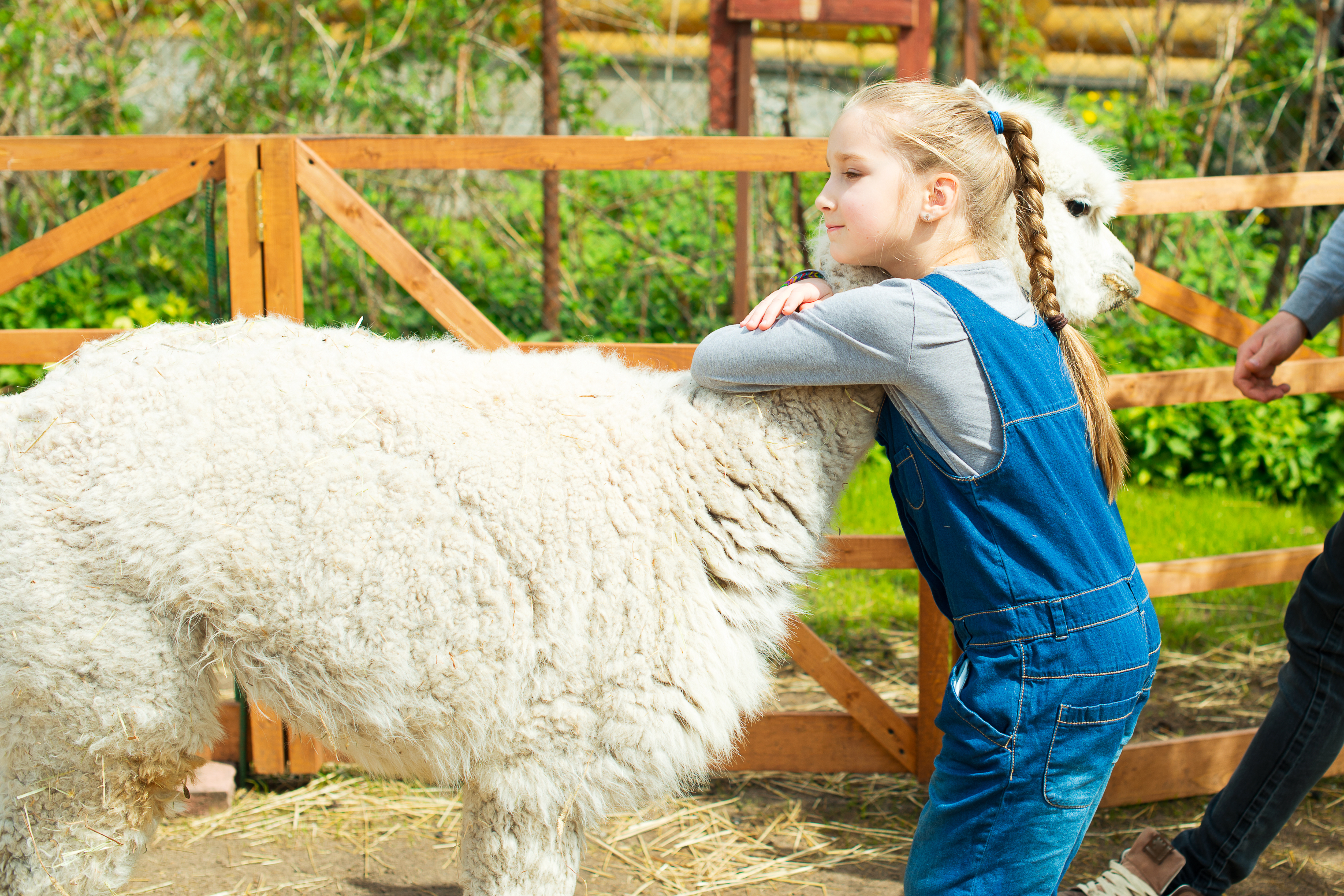
This is new! BellePaga is setting up a platform, referring many alpaca farms in Europe, where it is possible to make a visit.
It is possible on the website www.bellepaga.com, to find an alpaca farm near you. You will then be able to go directly to the farm's website and schedule your meeting with the alpacas!
During this visit, it is possible to carry out many activities.
When you arrive at the breeding site, you will have the opportunity to meet the alpacas, to learn how to distinguish male and female, and even to see, if you are lucky, babies and small alpacas!
The breeders are at your disposal to answer your questions about their way of life. You will also be able to appreciate and validate the quality and softness of alpaca wool by caressing them. Don't forget to immortalise your visit by taking photos!
In some farms, it is also possible to go for a walk or a hike with the alpacas. You will discover the environment in which these animals live. The alpaca is the ideal partner for a walk or hike. They like to move around in herds, so you will be accompanied by several alpacas. You will also have the opportunity to follow an educational presentation on the life of alpacas. No need to be afraid of these animals, which are incredibly gentle and cute! Open to all, including children, this walk through an alpaca farm will be a very special moment.
Each farm offers different activities and options that you can discover on our new platform.
A visit to an alpaca farm is an entertaining activity that is out of the ordinary, but above all a unique experience that will delight young and old alike!
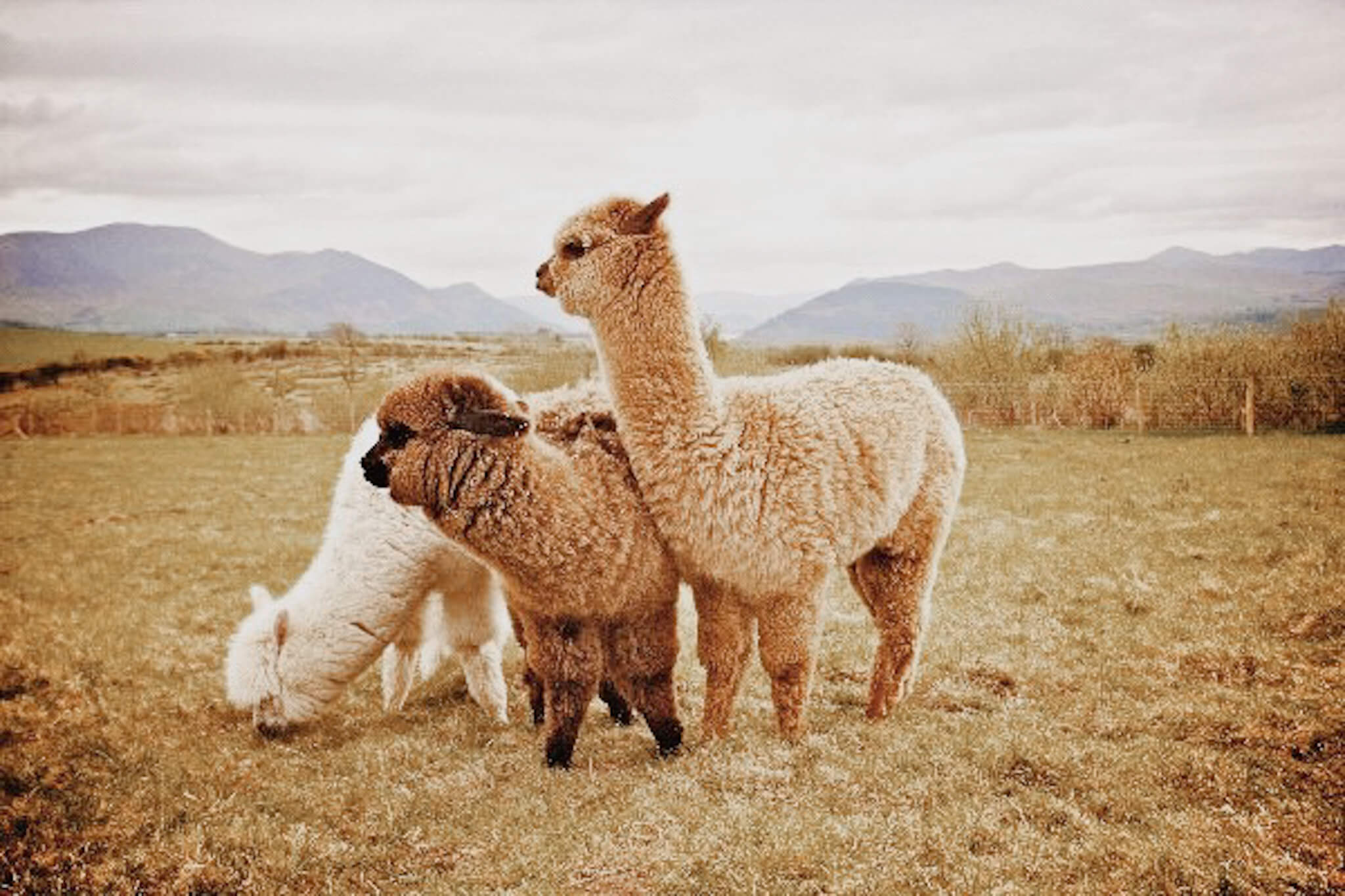
-
Headband Tuta
-
Warmi Poncho
-
Alpaca Soft Toy 33 cm - Alberto
-
Suni Scarf
-
La Paz Slippers
- 35
- 36
- 37
- 38
- 39
- 40
- 41
- 42
- 43
- 44
- 45
- 34
- 46
- 47

